 Table of contents
Table of contents
In the era of social media, filters have become the norm—brightening the tanned face, tweaking hair color, hiding wrinkles, and smoothing all facial features. However, achieving a flawless look in reality isn’t as simple as swiping right. Your hair, especially, goes through a lot every day. From extreme weather conditions and heat styling to using harsh products, so many things take a toll on your colored tresses. This calls out for hair color correction.
Improper or no color maintenance is the first culprit of an undesirable hue. Factors like environmental aggressors, dust, product buildup, and inappropriate washing can lead to color fading, brass, and uneven shades. Sometimes, wrong color mixing or at-home toning may result in disasters that only salon experts can help manage. But what is color correction exactly, and how does it work? Let’s delve deep to gain an understanding of the process.
Don’t let awful coloring outcomes stop you from experimenting. A few color-correcting sessions can reverse the undesirable result and restore your mane’s health and appearance. Simply put, hair color correction is a salon-exclusive procedure that involves fixing the existing hair color for imperfections. Richy Kandasamy, VP of R+Color Development, told Byrdie – “Correcting color and tonal issues and creating a balanced, complementary color requires skill and expertise. The goal is to ultimately create a more harmonious overall color.”
Common hair color issues
Getting an undesirable hair color isn’t always your hairstylist’s fault. At times, undesirable post-coloring outcomes occur even after a perfect coloring job. This happens when you don’t communicate your desire to the hairstylist. Besides that, several other issues demand hair color correction.
- Brassiness means unwanted yellow or orange tones that appear with constant exposure to heat and external aggressors. It is common in blonde and silver hair. The warm undertones give an ugly look, reducing color vibrancy and shine.
- Color fading tops the list of hair color concerns, as faded hues look worse than natural gray. Though you can use hair toners and pigmented shampoos to fade-proof the mane for quite some time, there’s no way to stop color fading once and for all.
- Overlapping or uneven tints can result from at-home coloring or mixing two colors inappropriately. They can also occur because of disturbed color saturation. Moreover, using incorrect developer volumes or color shades for root touch-ups can lead to uneven tints.
Hair color correction techniques
Once you discover an unpleasant tint on your crown, it’s impossible not to think about it for even a second. Here are expert hair color correction techniques that help improve your strands' overall appearance.
Bleaching or lightening

It is used to lighten hair to achieve a desired shade or create a blank space for a new tint. Bleach or lightener is applied to the strands in order to eliminate the color pigments and prepare the mane for a fresh color. If you prefer bleaching hair at home, use Moehair Tru Blu High Lift Lightener. It is best to use this professional-grade product under expert supervision. The advanced blue formula exhibits anti-yellow action, ensuring a brass-free finish.
Toning

This technique adjusts the tone of hair color. It’s like fine-tuning the hues to get the perfect shade. A hair toner is applied to enhance the existing tint and neutralize unwanted brassy tones. The toning session leaves you with natural-looking strands. You can use a color toner at home for hair color correction or book a salon appointment based on the desired result.
Also Read - A Guide On Hair Toner
Removing the color
This method helps get rid of the unwanted color. It’s like a reset button for your hair. A color remover is applied to break down or remove the existing color, leaving your strands ready for a new experiment. It is most likely used in extreme situations where imperfect hues can’t be corrected or toned otherwise.
Also Read - How To Remove Hair Dye Off Skin
Color melting, balayage, or highlights
These hair color correction techniques add depth and dimension to your hair color. Color melting, balayage, and highlights are different hairstyles for colored mane. They can be achieved by adding pigments to a few strands and blending them with the rest of your hair. All three give a multi-dimensional look, boosting texture and overall appearance.
What to expect
Hair color correction is all about finding the right shade and implementing it on your locks with quality-assured products. It is a process that requires the utmost precision and expertise. Thus, book a salon appointment and get rolling.
- Consultation – Colorist Olivia Smalley told Yahoo – “For clients going through major transformations, a consultation is key. Consultations make sure that you and your stylist are on the same page and that your goals and expectations are realistic and attainable.” Hence, start with a thorough consultation to discuss your goals and concerns.
- Color analysis – The stylist will analyze the factors like your existing hair color, undertone, and porosity. This helps determine the best correction approach.
- Correction process – The salon expert will apply the necessary corrective products to achieve the desired hue. Be sure to discuss concerns, if any, prior to the hair color correction process to ensure a fuss-free transformation.
- Processing time – This procedure can take anywhere from 60 minutes to several hours, depending on the complexity and imperfections of the hair color that need to be addressed.
- Follow-up appointments – This meticulous process is all about patience and precision. Multiple appointments may be scheduled to get the perfect shade.
-
At-home care – Never neglect color care at home. It increases longevity and reduces the need for frequent touch-ups. Choose color-safe products and avoid heat styling to maintain the mane’s shine and vibrancy.
Take our Hair Quiz for personalized product recommendations.
FAQs
Q1. What is color correction and is it expensive?
Color correction is the process of rectifying the existing hair color. There is no fixed charge for in-salon hair color correction. It entirely depends on the severity of the situation and the desired result.
Q2. How to correct a hair color mistake at home?
Hair color correction is a salon-exclusive process, and it should not be done at home until supervised by an experienced hairstylist.
Q3. Does color correction damage your hair?
Color correction helps fix the existing color for imperfections. It does not pose any significant harm to your hair, rather boosts its health and appearance.
Q4. How many sessions does color correction take?
It is difficult to determine the exact number of sessions for hair color correction. Depending on the method used, it can take anywhere from a few hours to a couple of sessions spread out over weeks.
Q5. How soon can you recolor hair if you don't like the color?
Ideally, one should wait four weeks before recoloring. However, if you don't like your hair color, it is best to book a salon appointment for color correction.
References –
https://www.byrdie.com/hair-color-correction-8557718
https://www.yahoo.com/lifestyle/colorist-corrected-splotchy-hair-dye-120000019.html
How we reviewed this article:
Our experts continually monitor the fashion and beauty space, and we update our articles when new information becomes available.
-
Current Version
-
May 29, 2024
Written By -
Upasana Kakati is a lifestyle writer with 7+ years of experience in writing in the beauty and haircare industry.
Edited By -
Saima Ahmed with 8+ yrs of experience, specializes in crafting engaging content focused on Hair care, lifestyle, and beauty.


















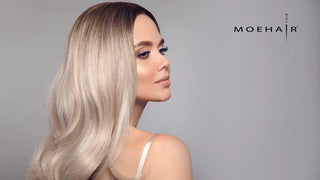
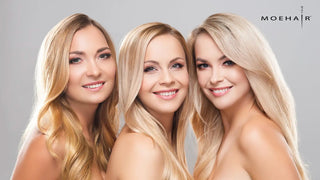
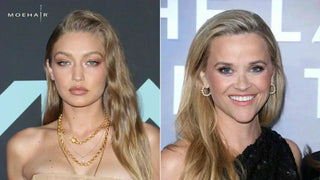
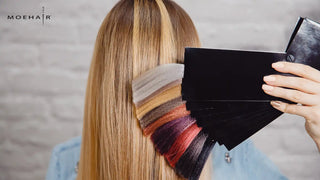
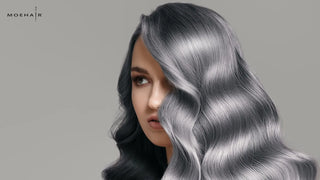
kirpalexports
Natural hair color is a beautiful testament to our individuality and heritage. It ranges from deep brunettes to fiery reds, striking blondes, and everything in between, reflecting a unique blend of genetics and personal history. Embracing your natural shade can be a powerful way to celebrate who you are and connect with your roots. https://kirpalexport.com/